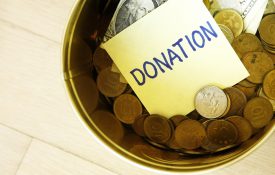-
Reporter turns in article about procrastination on time
PBS: While writing this article, I have engaged in the following activities: checked Facebook more than 35 times, watched 10 totally unrelated YouTube clips and browsed BuzzFeed. And I can’t even count the number of times I opened my email. In other words, I procrastinated on a story about procrastination. What was behind these overwhelming urges to do anything but write this story? And how much control did I have over my procrastination? Was I hardwired to put things off until the last minute? We all procrastinate. We delay things we know we shouldn’t — then scramble to get them done.
-
Open-Sourcing a Treatment for Cancer
The New Yorker: Elana Simon was given a diagnosis of a rare form of liver cancer at the age of twelve. Six years later, a few months shy of her high-school graduation, she is not only a survivor but a certified cancer researcher: today, she published an article about her disease, fibrolamellar hepatocellular carcinoma, in Science, one of the world’s most important scientific journals. One of the unique issues that Simon and others with extremely rare illnesses face is that there’s often not enough data to know exactly how to treat them.
-
Are More Eccentric Artists Perceived As Better Artists?
NPR: Think for a moment about an artist who is really out there in some way. Maybe a musician comes to mind, somebody like Lady Gaga or a painter like Salvador Dali. New research now asks whether you like such artists because of their art or because they conform to a mental stereotype of how artists are supposed to behave. ... But this is the first time I've seen empirical evidence that shows that being eccentric has a measurable effect on our judgments of art and artists. I spoke with Eric Igou. He's at the University of Limerick in Ireland and along with his co-author Wijnand Van Tilburg, he examined the effect that being eccentric has on our perceptions of art.
-
17 Signs You’re An Overachiever
The Huffington Post: "I just don't know how he/she manages to do it all!" If people are always saying this about you, you may be an overachiever. But while the title of "overachiever" often has a positive connotation -- think back to your elementary school days, when being an overachiever basically meant being the teacher's pet -- it's not always all it's cracked up to be. Overachievers are more likely, for instance, to feel anxious. And their motivations for, well, over-achieving, often stem from the need to avoid negative judgment, explains Robert Arkin, Ph.D., a professor of psychology at The Ohio State University. Read the whole story: The Huffington Post
-
Liars and Cheaters Make Better Art
Motherboard: Plenty of the world’s best artists haven’t exactly been stellar people, morally speaking. We pay comedians, novelists, and screenwriters to make stuff up and in exchange, forgive them their transgressions. Turns out, there may be a connection: A new study out of Harvard University suggests that lying actually makes you more creative. Previous studies have found that creative people are generally more dishonest than uncreative people, but the Harvard study, published in Psychological Science, suggests that people who lie or cheat immediately before doing a creative task perform better at it.
-

Got a Dollar? You May Be Happier if You Spend it on Someone Else
A boost to income can increase happiness to a certain degree, but research suggests how you spend your money may be equally important as the amount you have.

